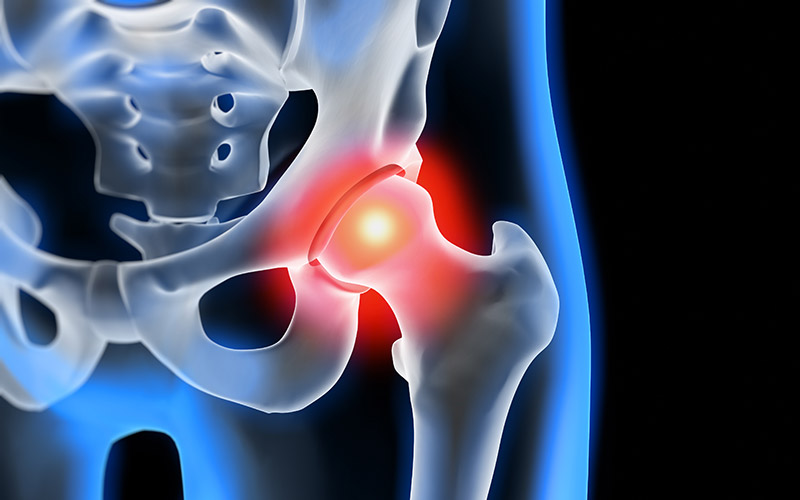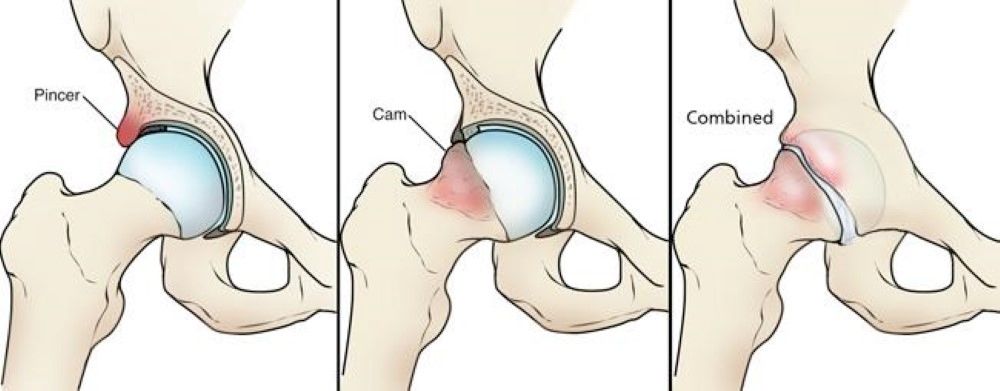
Hip pain is very common and can have several causes such as tendonitis, bursitis, and arthritis. The location of the pain symptoms can often provide a better understanding of the underlying cause. For example, lateral hip pain is often due to bursitis and IT Band Syndrome. Typically, problems in the groin area are related to structures inside the hip joint.
Femoroacetabular impingement (FAI) is a condition where abnormal friction or pinching occurs during movement of the hip joint. The hip joint is a ball and socket joint formed by the femoral head and acetabulum respectively. FAI occurs when the hip bones do not form normally during growth and the joint is abnormally shaped. There are three types of FAI :
- 1) Pincer: impingement due to extra bone extends out over the normal rim of acetabulum
- 2) Cam: impingement due to the femoral head not being round enough and a bump/bone spur forms on the edge of the femoral head
- 3) Combined: combination of both pincer and cam types

Each of these types of FAI can prevent the hip joint from moving correctly during activities such as exercise and sports. With time, this can cause tears in the labrum that forms a ring around the acetabulum and/or degeneration of the articular cartilage of the joint.
Symptoms of FAI can range from a general dull ache to a sharp, stabbing pain with certain movements such as squatting or twisting. The recommended treatment for FAI includes resting, avoiding positions or activities which aggravate symptoms, taking NSAIDs, and applying cold packs and/or hot packs.
Physical therapy can be very effective in treating FAI. Manual treatment and modalities can help to relieve pain symptoms. Specific stretching and strengthening exercises can help to improve the normal mechanics of the hip joint. In cases where conservative treatment approaches do not resolve symptoms, then surgery may be required to correct the bony abnormalities in the hip joint and to debride/repair any tears to the labrum.
If you have questions or would like to learn more about this topic, contact the therapy professionals at ProActive Physical Therapy and Sports Medicine for help.

